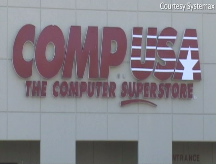Boring stuff coming to stores near you
Consumers won't see a lot of exciting products this year as recession-wary sellers avoid innovative merchandise in favor of bland and basic.
 |
| J.C. Penney spokesman Quinton Crenshaw says the retailer's new "trendy" women's brand I "heart" Ronson shows plenty of innovation and newness. |
NEW YORK (CNNMoney.com) -- Here's some bad news for consumers who are actually in the mood to shop through this recession: Bland, boring and basic products are coming to stores near you.
That's because retailers - afraid of being stuck with even more unsold merchandise - don't want to take a risk on selling products that seem too innovative or unconventional.
If this sounds counter-intuitive on the part of merchants when they are desperate to lift sagging sales, it is, said Marshal Cohen, chief retail analyst with market research firm NPD Group.
"Retailing is supposed to be synonymous with risk," Cohen said. Merchants always should attract shoppers with new and exciting merchandise, especially at times when consumers are shunning stores, he said.
Instead, Cohen and others are betting that stores shelves around the country will lack excitement - and potentially stock fewer items - in the months ahead.
"Many retailers will have a smattering of innovative merchandise but a lot of what you will see will be safe products," he said. "It will be basic and boring."
That means in clothing, for example, stores will offer fewer colors and styles.
As a result, Cohen fears that retailing could come to a "dramatically greater slowdown" than it's already seen over the past year.
"There are three types of consumers," Cohen said. "The first buys necessities. The second buys to replenish and the third buys on impulse."
"Retailers have already lost impulse buyers. Now they're in danger of losing the second group, too," he added. "If you don't give reluctant consumers a compelling reason to upgrade their wardrobe, they won't."
As the recession continues to cripple retailers, forcing ongoing bankruptcies and liquidations, surviving store chains are desperately cutting costs across the board.
Numerous national sellers, including Wal-Mart (WMT, Fortune 500), Macy's (M, Fortune 500) and Home Depot (HD, Fortune 500) recently announced substantial layoffs. Once they're done with staffing cuts, industry experts expect store chains will reevaluate their real estate portfolios and look to "downsize" operations.
And managing their inventory is the other critical component of containing costs.
Besides ordering fewer products in a soft sales environment, merchants also don't want to sell products that they are unsure about, said Andrew Bartolini, vice president of global supply management research with Aberdeen Group.
"Retailers aren't going to order products based on speculation that someone will buy them," Bartolini said. "In their mind, this isn't the time to say 'If we build it, they will come."
Typically, merchants demand innovative products from their suppliers. So if retailers aren't asking for newness, then manufacturers also have less incentive to think outside of the box.
But at least one large retailer - J.C. Penney (JCP, Fortune 500) - says it's not shying away from selling creative products.
"Regardless of the tough economic environment, customers are responding to newness and innovation at value prices. So we're stepping up our efforts," said Penney spokesman Quinton Crenshaw.
Crenshaw drew attention to two exclusive "trendy" clothing brands for women - Allen B. by designer Allen B. Schwartz and the I "heart" Ronson by Charlotte Ronson - that Penney will launch in the spring.
"[Consumers] are looking for exceptional designer style at a price that makes sense for their budgets, and that's why we're highlighting diverse and stylish brands [for spring]," he said.
The second dimension of the merchandise problem could affect product availability in stores, said Josh Green, CEO of Panjiva, a firm that advises leading U.S. retailers such as Home Depot (HD, Fortune 500) on supply chain risks.
The company tracks global shipments to the United States from about 500,000 global suppliers.
The worldwide impact of the recession had taken out a large number of suppliers in countries like China, India, Brazil and Bangladesh - key sourcing nations for consumer products sold in the United States.
Panjiva's data showed the total number of vendors that shipped products like food, clothing, toys and furniture to the United States fell 13% in 2008 over the prior year.
"This supply chain risk has grown exponentially over the past 12 to 18 months," said Bartolini.
And more vendors will go out of business as retailers continue to cut back on orders for this year. "They simply can't stay in business," Green said. "Without question, retailers are very anxious," said Green. "Supply chain disruptions are a significant threat to consumer demand."
Bartolini said consumers could see product shortages in some stores.
For his part, Cohen had some harsh words for sellers. "You can't keep boring the consumer," he said. "Any retailer that says it is cutting back on inventory to become leaner and meaner is just lazy."
"Down times aren't about getting rid of risk but managing risk. New and exciting product is what's going to sell, even in a recession," he said. ![]()


